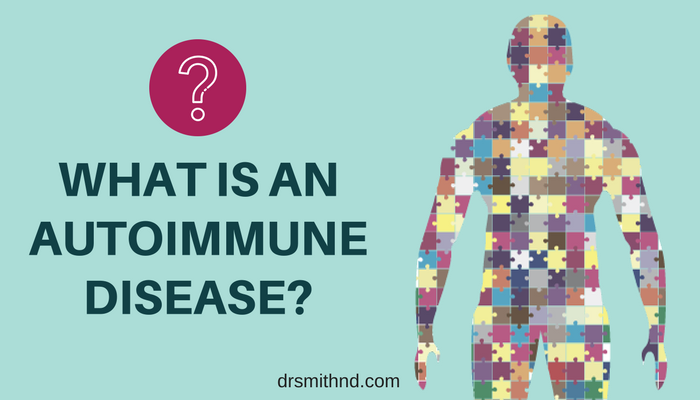An Autoimmune Disease is a condition in which the immune system attacks a part of its own body.
This is an anomaly. Normally, the immune system is intelligent, vigilant and primed to protect the body as soon as it detects a foreign substance, abnormal cell, or tissues by producing an immune response. These responses vary depending on what our immune system detects, but generally, this involves plasma fighter cells creating antibodies, which specifically tag the foreign invaders so the rest of the immune system can identify it and then be able to fight it.
This battle usually results in inflammation which is the common denominator of all autoimmune conditions. It is also why so often it can take a long time to diagnose an autoimmune disease, as they can look like many other types of conditions as they are developing.
When our immune system is healthy, it can easily tell the difference between foreign cells or material, and our own cells. But when an autoimmune disease develops our immune system becomes misdirected and targets us, resulting in an inflammatory process involving one or various organ systems depending on the type of autoimmune condition.
Scientists have identified more than 80 types of autoimmune diseases, all of which have different symptoms. In some of these diseases, like Type 1 Diabetes, the immune system targets a specific part of the body (in this case the pancreas). While in other conditions, like lupus, the whole body is affected.
What Causes Autoimmune Diseases?
Researchers aren’t yet completely clear on the various potential triggers but they are making huge strides to determine who is most at risk of contracting autoimmune diseases.
One confirmed and unfortunate fact is that women are more than twice as likely to get an autoimmune disease than men, with prevalence rates reaching 6.4% of the population. Additionally, depending on the disease, autoimmune conditions tend to affect some ethnic groups more than others.
Below are a few scenarios which may potentially make us more vulnerable to developing an autoimmune condition (in particular if they happen in combination of course):
- Emotional stress (i.e. death, divorce, etc.)
- Physical stress (i.e. surgery, a big bout of viral or bacterial illness, a car accident, etc.)
- Familial genetics (if others in your family have autoimmune condition, there is a higher chance you may develop one)
- dysbiosis/ gut health. If you have an imbalance of good to bad bacteria that is significant enough, this can impact your immune system negatively.
- Toxic burden. Many people are exposed to mold or other toxins that for them as individuals is more than their body can bear which will cause immune confusion. Thankfully now there are good genetic tests to screen for impaired detoxification pathways which make us more vulnerable to building up too many toxins in our bodies. Additionally, there are some excellent environmental toxin panels we can use to accurately assess exposures and toxic.
The 6 Most Common Autoimmune diseases
Medical researchers believe that there are more than 80 different autoimmune diseases. Their symptoms overlap, making them hard to diagnose and for many of them, and furthermore, we still don’t have the testing we need to diagnose many of them.Here are six most common ones.
1. Type 1 Diabetes
In type 1 diabetes, the immune system attacks and destroys insulin-producing cells in the pancreas, an organ that helps regulate blood sugar levels.
This damages blood vessels, and organs like the heart, kidneys, and eyes.
2. Rheumatoid Arthritis
In rheumatoid arthritis, the immune system attacks the joints, causing pain and stiffness.
3. Psoriasis and Psoriatic Arthritis
Psoriasis is an autoimmune disease that causes skin cells to multiply too quickly. This causes red, scaly patches called scales to form on the skin. About one-third of the people who suffer from psoriasis also develop swelling, stiffness, and pain in their joints. This form of the disease is called psoriatic arthritis.
4. Multiple Sclerosis
Multiple sclerosis (MS) is a degenerative autoimmune disease that damages something known as the myelin sheath, which is a protective coating that surrounds nerve cells. This damage affects the transmission of messages between the brain and the body and leads to numbness, weakness, balance issues, and eventually severe physical impairment.
5. Lupus
Lupus is a severe autoimmune disease that affects skin, joints, kidneys, brain, and heart
6. Inflammatory Bowel Disease
Inflammatory bowel disease is a term used to describe a series of autoimmune diseases that affect the lining of the intestines. These diseases include Crohn’s disease and Ulcerative colitis, both of with affect parts of the gastrointestinal tract.
Other Autoimmune Diseases
Other autoimmune diseases include Addison’s disease, Graves’ disease, Sjögren’s syndrome and Hashimoto’s thyroiditis
Common Symptoms Of Autoimmune Diseases
The early symptoms of many autoimmune diseases are very similar, which is why they are so difficult to diagnose. If you are feeling any of these symptoms, consult a medical or naturopathic doctor immediately.
- fatigue
- achy muscles
- swelling and redness
- low-grade fever
- trouble concentrating
- numbness and tingling in the hands and feet
- hair loss
- skin rashes
If you are suffering from any of these symptoms, definitely consider booking a
Naturopathic Consultation to assess what may be causing the issue or contributing to the condition in a negative way.
What is Naturopathic Treatment for Autoimmune Disease?
Of course this varies dramatically depending on the specific condition, but fortunately, Naturopathic Doctors truly do have a lot to offer in this area of medicine.
We have numerous ways of reducing inflammation through diet, through safe use of herbs, through proper assessment of lifestyle and appropriate lifestyles changes, sometimes with acupuncture, and by identifying if there are exposures that are contributing to the problem. Our holistic way of assessing and treating patients often bring benefit in these cases.
Additionally, NDs are experts at assessing and testing for gastrointestinal dysbiosis and rebuilding a robust gut microbiome. Understand that this is NOT an “either or” situation. NDs are working in adjunctive care capacities in most of these cases and that is the whole point: specialists play a vital role as do medications, but so do we.
Naturopathic doctors can help you reduce your pain, or help you reduce side effects of essential medications and often help you get more benefit from them. In some cases, patients experience so much symptom resolution that they can decrease their medications and some even get off of them completely. It is important to note however that people respond differently to treatment and the progression of each patient’s condition is individual.
NDs also take the time to teach their patients how to optimize their chances of getting into remission and how to mitigate having another flare up. The bottom line is, across Canada and the United States NDs are playing a much needed, vital role in this area of health care. If you’re concerned you have an autoimmune problem or are wanting to learn more about our type of care/testing/ medicine – please call to book a short complimentary consult as I would be happy to talk with you about it.
Dr. Smith, ND


